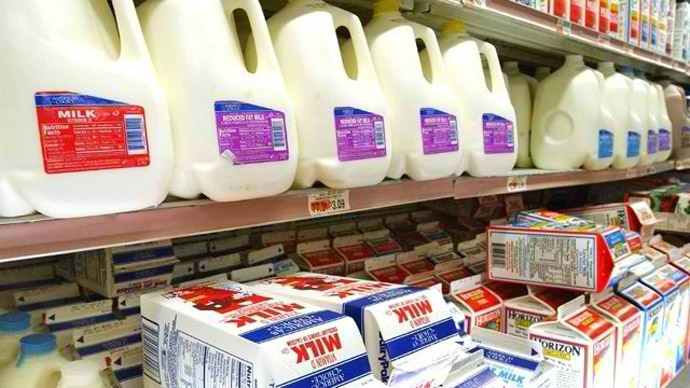A new study has been released on milk and kids’ health. The study shows and discusses the difference of children who drink dairy-alternative milk products and those who drink cow’s milk. Alternative-dairy products or non-cow’s milk and plant-based milk products include: almond, rice, and soy (milk). The study says that drinking these alternatives can cause kids to be visibly shorter than those who drink cow’s milk.
The research also revealed that parents who choose non-dairy drinks like soy, almond, or rice milk instead of cow’s milk stun their children’s growth.
The American Journal Of Clinical Nutrition said that the most shocking discovery was that “the amount children were shorter depended on how much they were consuming.”
The study’s lead author discovered a difference. It is that the average height difference of a child who consume one cup of dairy alternatives daily tend to be about 0.4 centimeters (0.15 inches) shorter compare to kids who drink cow’s milk.
In addition to that, the more non-dairy milk a child drinks, the greater that height disparity becomes. So, for example, kids who consume three daily cups of non-dairy milk tend to be about 1.5 centimeters (0.6 inches) shorter.
The study suggests one reason for the difference in height might be that plant-based milk does not stimulate insulin-like growth factor production, as well as cow’s milk does.
“Cow’s milk has been a reliable source of dietary protein and fat for children, two essential nutrients to ensure proper growth in early childhood.”
“But many parents are now choosing non-cow’s milk for their children, which may have lower nutritional content.”
According to researchers, two cups of cow’s milk contains 16 grams of protein, which is 100% of the daily protein requirement for a three-year-old child. The same amount of almond milk drink typically contains just quarter of the protein.
Researchers added that height is an important indicator of a child’s overall health.
“Not a tiny difference for young children,” lead researcher, and pediatrician Dr. Jonathon Maguire of St. Michael’s Hospital in Toronto, Canada told CNN.
Maguire added that he found the increase in height disparity with increased non-dairy consumption to be particularly remarkable. “It’s not like if you’re not consuming cow’s milk, you’re a little shorter. It’s more like if you are consuming non-cow’s milk, with each cup that a child consumes, that child on average appears to be a little bit smaller, a little shorter. That’s a bit surprising.”
Maguire and company tracked down the growth height differences of more than 5,000 Canadian children with an even gender split between the ages of two and six. About five percent drank only non-dairy alternatives, while about 84% exclusively drank cow’s milk and the remaining children which are about eight percent drank both and about three percent drank neither).
In no doubt, the non-cow milk drinkers ended up shorter.
Nevertheless, some experts worry that the study may be misleading. The study even raised a number of questions and concerns.
One expert pointed out that taller children are not necessarily healthier; saying that it’s not appropriate to use height as a marker for health.
Maguire isn’t sure either if the non-dairy drinkers eventually catch up to the dairy drinkers over time.
Whatever the reason, Maguire is confident that non-dairy alternatives are nutritionally inferior; that their industry should be more tightly regulated. So that parents wouldn’t think that those products provide the same benefits as cow’s milk.
However, the study’s authors did not investigate why the children drink alternative milk products. Was it because it tasted better? Or do they have other health issues? We surely do not know.
What we do know now is that non-dairy milk do not have the same impact to our body as cow’s milk. We should take note of that.

